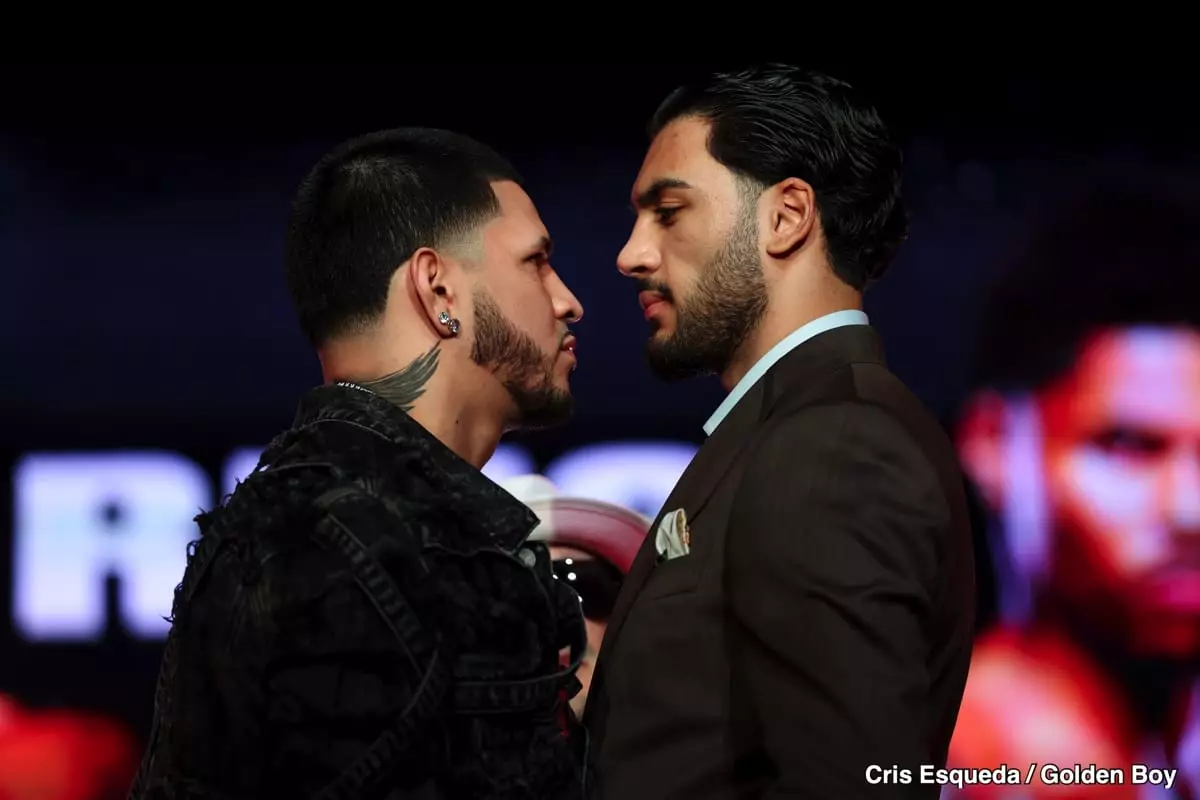The recent comments from Turki Alalshikh, expressing disappointment about his fighter Hamzah Sheeraz potentially being knocked out by Edgar Berlanga, have sparked more than just casual banter in the boxing community. Berlanga’s response demonstrates a man who is unshaken by external opinions and instead chooses to focus on his own ambitions. While Turki’s intentions may be rooted in strategic matchmaking—aiming to position Sheeraz for future plans—Berlanga’s posture indicates a level of defiance and self-confidence. His refusal to be deterred by ‘big plans’ for his opponent highlights an important trait for a fighter seeking to carve out a legacy: resilience against distractions and disrespect.
Berlanga’s firm stance reveals more than just bravado; it’s a declaration of independence. He dismisses Turki’s comments as irrelevant to his core goal, which is to win his fights and command respect in the ring. This mentality is crucial because fighters often expend mental energy responding to criticism rather than focusing on their craft. Berlanga’s approach suggests that he’s well aware that external noise—be it from promoters, managers, or fans—is secondary to the discipline required for success. This mindset could be the difference-maker as he prepares for his upcoming bout.
The Difficult Road to High-Profile Matchups
The reality Berlanga faces is a saturated and somewhat limited division at 168 pounds. With few marquee stars available and the recent setback of Jaime Munguia’s suspension due to a failed drug test, Berlanga finds himself in a peculiar position. His only serious target—Munguia—is currently sidelined, leaving Berlanga searching for viable opponents who can elevate his profile. The absence of elite names in the division hampers his pursuit of significant fights, forcing him to consider alternative paths, such as moving up to light heavyweight. There, he could position himself for notable matchups like a clash with WBC champion David Benavidez.
What’s noteworthy is Berlanga’s strategic patience. Instead of rushing into unfavorable matchups or chasing fights that can’t yet be made, he plans to bank on his performance in the ring to generate demand. His declaration that he will “handle his business” exemplifies a fighter who prioritizes merit over hype. Such focus and unwavering confidence can serve as a wake-up call to promoters and peers alike—Berlanga isn’t just about talk; he intends to back his words with actions.
Reevaluating Prosperity and Power Dynamics
Berlanga’s disdain for the current landscape underscores a broader truth about boxing—power dynamics are often fractured and unpredictable. The sport’s politics, from promotional conflicts to sanctioning bodies, can delay or block ideal matchups. Berlanga’s frustration with the lack of high-profile opportunities at 168 underpins a fundamental challenge: how fighters navigate the often murky waters of the sport’s business side.
Yet, Berlanga’s unwavering “boss” mentality signifies that he is ready to outwork and outfight the competition once given the chance. His dismissive attitude toward Turki’s plans hints that he perceives himself as a future star who should not be sidelined or underestimated. Ultimately, Berlanga’s focus is a testament to the importance of mental resilience and strategic patience in boxing—traits necessary to stand out in a crowded and often chaotic landscape. In the end, Berlanga’s message is clear: he’s not here to entertain excuses but to dominate and redefine his place in the boxing hierarchy.

